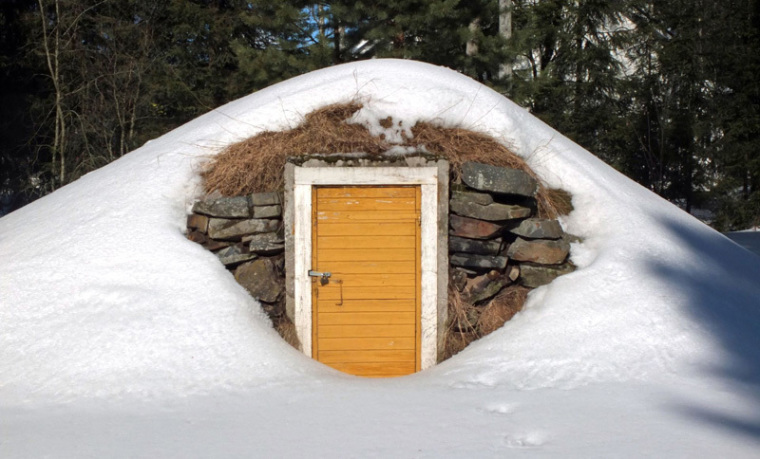
We live in a time of likely unparalleled uncertainty. Perhaps because of this, the phenomenon of “prepping” has grown all around the world. This has led to some who identify as being Christian to take up prepping.
Some people believe that Christians should not be preppers. Others believe we should be. Before I give my thoughts on this it is important to clarify what a prepper actually is.
Definition and types
To put it simply, a prepper is someone who foresees a possibility of a negative event or disaster occurring in the future and prepares for these events accordingly, with the aim to mitigate the effects. There is all manner of different kinds of preppers. Perhaps the most recognised of which are, unfortunately, the infamous “Doomsday Preppers” of the show aired by National Geographic. Most people on the show appeared to be on the not-quite-sane, extreme end of the scale. There’s plenty of variety among them: nuclear fallout preppers, EMP preppers, economic collapse preppers, global warming preppers, pandemic and biological warfare preppers, etc.
Regardless of what they were prepping for they had the shared trait of stockpiling whatever supplies they imagined would be necessary to survive. Most prepper checklists essentially boil down to first-aid needs, self-defence needs, and general sustenance.
You might be wondering if Scripture itself has anything to say about the subject. As a matter of fact, it does.
In Proverbs there are multiple verses which speak on the matter. For example, “Go to the ant, O sluggard; consider her ways, and be wise. Without having any chief, officer, or ruler she prepares her bread in Summer and gathers her food in harvest.” (Proverbs chapter 6, verses 6-8). Both chapters 22, verse 3 and 27 verse 12 say: “The prudent sees danger and hides himself, but the simple go on and suffer for it.”
It also says: “Precious treasure and oil are in a wise man’s dwelling, but a foolish man devours it.” (Proverbs chapter 21, verse 20). Clearly, the writer of the proverbs saw much wisdom in preparing for the future.
Looking to the New Testament we see that even Jesus Himself made statements which seem supportive of prepping for slightly less mundane events than those in Proverbs, events involving travel, self-defence, and money-related activities.
Noah
If we look back much further in the Bible and time, we see the example of Noah and his family. By faith, Noah and his family built the ark that would save themselves and chosen animals from certain destruction. Part of Noah’s “preps” involved ensuring he, his family, and the animals had all the food and water they would need: “And take with you every sort of food that is eaten, and store it up. It shall serve as food for you and for them. Noah did this; he did all that God commanded him.” (Genesis chapter 6, verse 21).
Noah and his family didn’t wait until the last moment to do what they were commanded, until it started raining to build the ark. What was brought onto the ark? A stockpile of everything needed to repopulate the earth.
Joseph
Another well-known example is Joseph. He was brought before the pharaoh of the time to interpret his dreams, which were warnings of 7 years of famine which would occur shortly. Pharaoh put Joseph in charge of distributing the food during the famine.
Scripture says: “During the 7 plentiful years the earth produced abundantly and he gathered up all the food of these 7 years, which occurred in the land of Egypt, and put the food in the cities. He put in every city the food from the fields around it. And Joseph stored up grain in great abundance, like the sand of the Sea, until he ceased to measure it, for it could not be measured.” (Genesis chapter 41, verses 47-49).
God gave him advance warning of the famine so in the 7 years preceding it, he could prepare Egypt and its neighbours through the hard times to come.
Moses
Another person who could be counted as a prepper is Moses. On the night of the Passover in Exodus 12, God told him and the Hebrews to have their bags packed and ready. While the way they prepped isn’t as noticeable as the other ways mentioned, they still had to prepare for a major event coming their way.
There is so much more that could be said on prepping, but from what I have shown I believe it’s clear what view scripture takes on the matter.
People today
Waiting until the last possible moment to prepare is how most people live today. The non-prepared descend on local supermarkets, only to find the store is already emptied.
The Bible encourages the wise to study the dangers ahead and take precautions to protect themselves and their families from these threats. Even in short-term disasters, food supplies and the ability to acquire and preserve new supplies are determining factors in whether or not you make it through the crisis.
Asserting that preparedness represents failure to trust God to meet our future needs, is actually not a biblical response. Prepping can be a Christian activity that glorifies God. It can also be misused and abused. Christians can be “preppers” when prepping is handled with the right heart and motivation. Christian prepping is about focus, faith and stewardship. We’re never to place our faith in our “preps”. Prepping is a manifestation of Godly wisdom.

Katelin Staples is from Gladstone, Queensland. By day Katelin is employed as a proofreader. Katelin has a passion for discovering the deep things of God and how they affect the world around us.